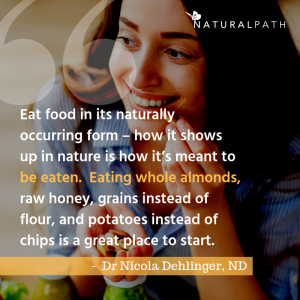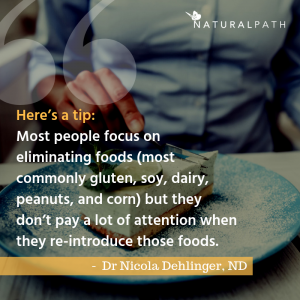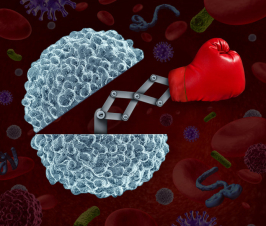I was in Boulder having dinner with a mentor of mine a few weeks ago when he shared with me that he had been on a “carnivore” diet for 4 months – meaning he was exclusively eating meat – primarily red, almost raw meat. No veggies. No grains. No fruit. Just meat. I was shocked. I really couldn’t wrap my head around it. Yet he reports feeling better than he has in his 70+ years – great energy, reduced pain, strong sex drive…who could argue with that? I wondered as I took another bite of my kale salad, thinking about how much I would miss eating vegetables.
No veggies. No grains. No fruit. Just meat.
Then last week I had family in town and one member has been doing 22-hour fasting for the past 3-4 months – eating just once a day. He has coffee in the morning, tea and kombucha during the day, and then eats a large salad and other plant-based foods in the evening. And he reports feeling a ton better – sleep has improved, energy is high, pain and chronic disease have vanished.
 Is there one diet that cures all that ails us?
Is there one diet that cures all that ails us?
I reflected on a friend with type I diabetes who is best managed on the Keto diet. And as a blood type O, I feel much better sticking to meat and with a smattering of carbs.
All of this has gotten me to thinking – is there a magic bullet? One diet that cures all that ails us?
Nope. There are just a lot of people out there that have found what works for them, and now they’re preaching to all of us about what has been their panacea. (Which leads many of us to wonder if that diet would improve our health and vitality too!)
What I realized
What I realized that all of the examples above have in common is that each person has been experimenting with food for a long time. They have tried things on to see how it felt. They are willing to accept what works and let go of what doesn’t. They might have been inspired by someone else’s story of success, but they are most influenced from what their bodies are telling them directly.
What I see all too often in my patients
What I see all too often in my patients is they go from a lackadaisical diet (with no structure and not much thought) and dive into a pretty complicated and foreign diet which often leaves them unsuccessful or not feeling well. It’s often because some basic foundational principals – that I believe are universal – were not put into place first.
 So here’s where I recommend everyone start when trying to make decisions about what foods to include and which to avoid:
So here’s where I recommend everyone start when trying to make decisions about what foods to include and which to avoid:
- Eat food in its naturally occurring form – how it shows up in nature is how it’s meant to be eaten. Eating whole almonds, raw honey, grains instead of flour, and potatoes instead of chips is a great place to start.
- If you’re suspicious of having food sensitivities, rather than do an expensive test, do an elimination diet. Here’s a tip: most people focus on eliminating foods (most commonly gluten, soy, dairy, peanuts, and corn) but they don’t pay a lot of attention when they re-introduce those foods. You have to take lots of time to re-introduce the foods one at-a-time so you notice how your body responds to each individual food. Many of my patients don’t notice a huge difference upon removing the foods, but they really notice a return of symptoms when they add them back in. If you add more than one in at a time and have a reaction, you won’t know for sure which food caused it!
- Eat food as it was traditionally prepared. Soy and dairy have always been cultured and fermented. Grains are soaked and sprouted. Fruits and vegetables are eaten during the season in which they’re grown (i.e. more leafy greens in summer and root veggies in winter). Sweeteners were used sparingly, if at all.
- Start every day with water to wake up your liver and digestive tract. Don’t wait until midday and then try to catch up. Keep a glass on your bedside table to drink upon waking and then have another while your coffee or tea is brewing. Now you just have to maintain for the rest of the day.
- Just because it’s available in a health food store, doesn’t mean it’s good for you. Continue to read labels, look for additives and choose food AS ingredients, rather than food with ingredients. Be an educated consumer!
If you can master these 5 principles
If you can master these 5 principles, I guarantee you will be well on your way to higher vitality and optimal health. These are the tenets that have guided healthy eating since time immemorial and aren’t influenced by the fad diet du jour. Most of those trendy diets are spin-offs of these concepts.
Slowing down and taking the time to listen to your body
Slowing down and taking the time to listen to your body will ensure that you make healthful choices for you every time you eat. And what is good for your body will vary from what makes other bodies happy. Take time to be curious about how your body receives various foods and play around to see where you feel best. Have faith that you have the perfect nutritionist inside of you who is just waiting for you to listen.

Nicola Dehlinger, ND, graduated from SCNM in 2004. Dr Nicola sees clients from around the world in her naturopathic medical practice, Pura Vida Natural Healthcare, in Durango, CO. She is an expert in the treatment of anxiety, depression, and insomnia. She is able to minimize supplements and medications as her patients become empowered to heal themselves. In addition to seeing clients, Dr Nicola leads group and private retreats. She also teaches a variety of online and in-person classes. In her free time, you can find Dr Nicola in the mountains or the kitchen, enjoying time with her husband, son, and their dogs. Website: www.puravidahealthcare.com

















